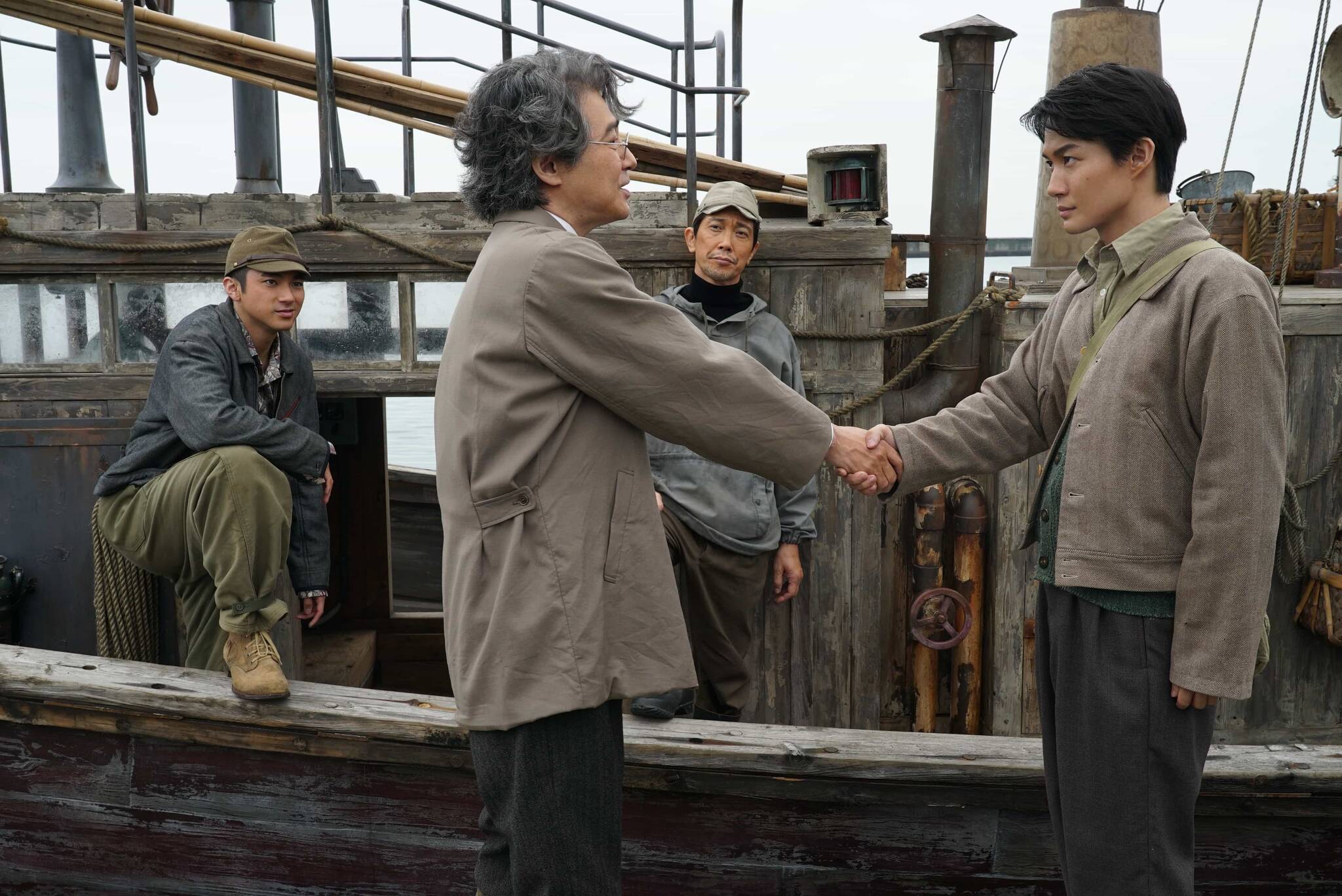When I took my seat last week to catch a showing of “Godzilla Minus One,” I didn’t know what it was about — besides, of course, big lizard. To my immense surprise, it’s one of the best films I’ve seen this year, one that made me cry and one that made me cheer, not because of a giant computer-generated monster, but instead because of its emotional narrative grounded in humanity, history and politics.
Despite being unfamiliar with “Minus One,” I’d been drawn in by social media buzz calling it one of the best movies of the year and — perplexingly — a strong complement to “Oppenheimer,” a gripping political thriller about the construction of the atomic bomb during World War II.
I hadn’t seen a trailer, and my only context for the “Godzilla” franchise was the contemporary American “MonsterVerse” films that began with 2014’s “Godzilla.” Those are perfectly fun, if unremarkable, movies where the “King of Monsters” gets into flashy fight scenes and I shovel popcorn into my mouth. They don’t have a ton of substance. “Minus One” is something so much more interesting.
“Godzilla Minus One” isn’t about a giant monster destroying cities — though that does happen. It is, instead, a deeply human tale of grief, regret and hope in the immediate aftermath of World War II, centered on people desperately seeking meaning in the midst of post-war ruin and recovery.
Ryunosuke Kamiki plays Koichi Shikishima, a kamikaze pilot who, in “the final days” of World War II, fails to complete his assigned task — faking a mechanical issue with his plane and landing on Odo Island for repairs. Godzilla arrives on the island that night, and Shikishima, given an opportunity to potentially stop the monster, again fails to follow through.
Shikishima returns to a home in ruins, his family killed by the American bombs in Tokyo, carrying the photos of all of the mechanics who died on the island — who he believes he could have saved.
He creates a family in the ashes, a woman moving into his home with an orphaned child. He works on a mine disposal crew, cleaning up the waters around the city. He’s haunted by nightmares and the knowledge that Godzilla is still out there. He struggles to move past the war.
“I’d like to try to live again,” he tells his partner, Minami Hamabe’s Noriko Oishi. But then Godzilla returns — mutated and much larger as a result of American nuclear testing at Bikini Atoll.
“Godzilla Minus One” is a profoundly hopeful story about the resiliency of humanity in the face of atrocity. It balances criticism of the Japanese government with a celebration of the spirit of the Japanese people. The film features frightening sequences of devastation at Godzilla’s hand, but it spends far more time sitting with its human characters as they process their grief and work together to achieve reconstruction and healing. It’s an endlessly charming core cast that breathes life into each of those sequences.
Standouts are Shikishima’s three friends from work — former engineer Kenji Noda played by Hidetaka Yoshioka; minesweeper captain Yoji Akitsu played by Kuranosuke Sasaki; and the “kid,” Shiro Mizushima, played by Yuki Yamada.
Together they serve as something of a guiding light for Shikishima while also adding some valuable levity to the film’s darkest moments.
Shikishima and his friends are among a coalition of ordinary people who come together when Godzilla attacks. Many of them still carry emotional scars from the war, but they rise up to defend their country without the aid of their government because “someone has to do it.”
“This country has treated life far too cheaply,” Noda says while explaining his plan to defeat the monster. He promises “a citizen-led effort that sacrifices no lives … a battle to live for the future.”
The film’s climax stands among any of the best sequences and spectacles I’ve seen on a theater screen — people working with hastily repaired equipment to implement a long-shot plan to save their city. It has imaginative twists and turns, stellar effects and great performances all set to a thrilling score by composer Naoki Sato.
“Godzilla Minus One” is everything I’m looking for when I go out to the movies. It’s a spectacle that deserves the added impact of movie theater screens and speakers. It left me with a lot on my mind and a tear on my cheek.
It’s tremendously exciting to see this film, with only Japanese audio and English subtitles, given that spotlight in Kenai, Alaska. That’s especially true this year when so many interesting — outlying — movies haven’t made it to local screens.
“Godzilla Minus One” will be playing this weekend at the Kenai Cinema. Check showtimes and purchase tickets at catheaters.com.
Reach reporter Jake Dye at jacob.dye@peninsulaclarion.com.

